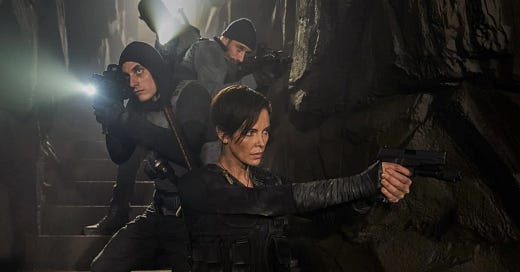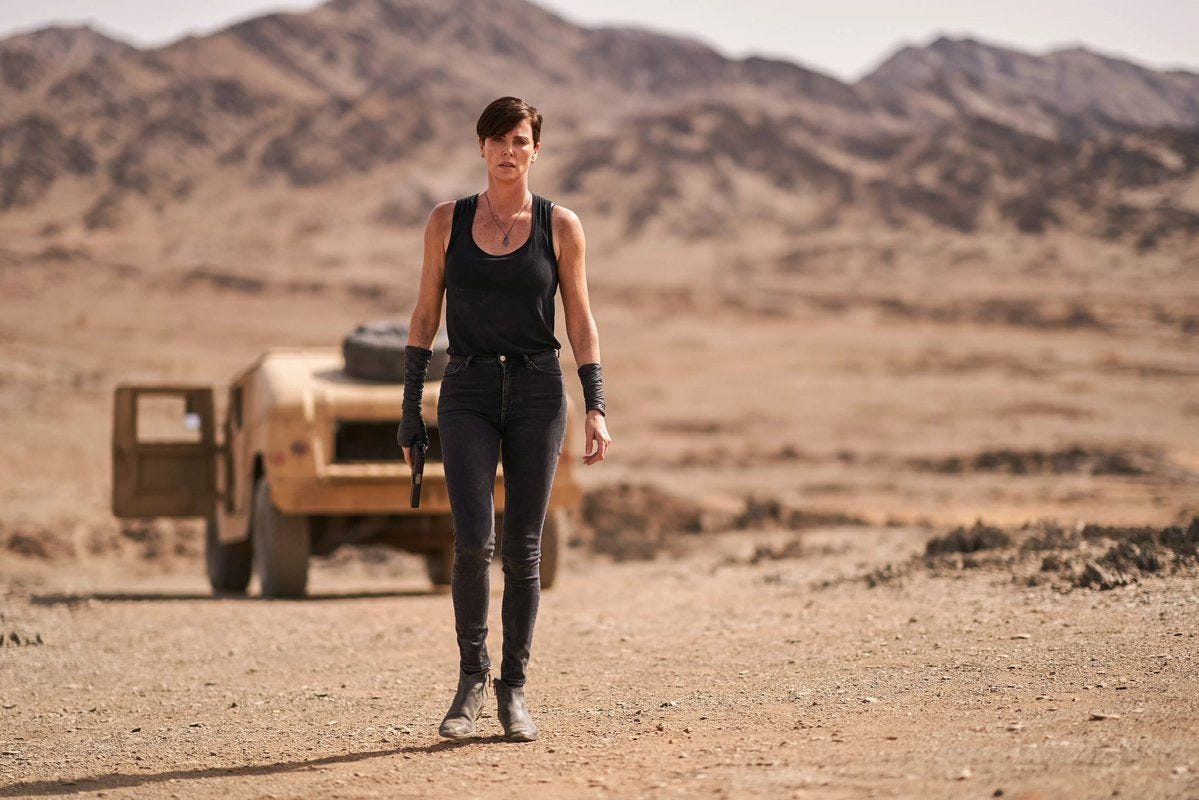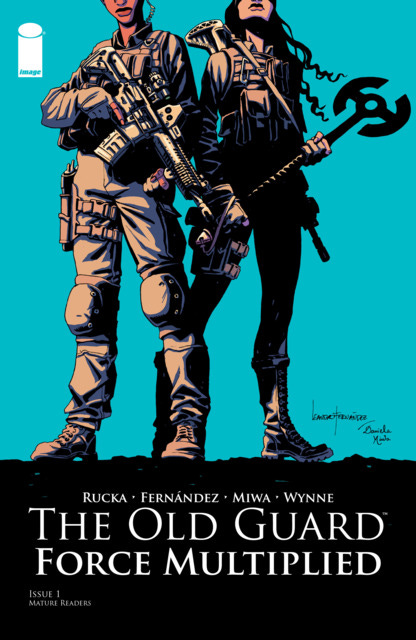[#31] The Old Guard: Immortals, Existentialism, and Superhero films
A great superhero film is one of the unifiers of society. These films bring people together in the same way that sport does. For just a moment, every single spectator is filled with the same emotion. Think: Captain America lifting Mjolnir in Avengers Endgame. Nadal poised at match point against Federer at the 2008 Wimbledon final (Nadal won 6–4, 6–4, 6–7(5–7), 6–7(8–10), 9–7.). The Titans winning the title in Remember the Titans.
What's the similarity?
All are performances of grace under impossible, Atlassian stakes.
A quick summary of the superhero genre: for almost a decade, the MCU and the DC League have dominated all conversation around superhero films. In 2019, Avengers: Endgame was released worldwide. It was a fitting end to one era of the Marvel Cinematic Universe, which had shaped the cultural landscape since 2008 with the release of Iron Man. From then on, an MCU film came out every year. For me, Endgame was the swan song of the MCU, though a few interesting projects followed, like Black Panther's epilogue and the multiverse explorations of Loki and WandaVision. What made those shows stand out was their willingness to explore aftermaths.
But The Old Guard, 2020, based on a series of graphic novels, offered something stranger and lonelier. The film was a meditation on violence, memory, and the centuries that accumulate behind a person's eyes. Charlize Theron's Andromache (a name which means fighter of men. Chefs kiss) wasn’t a hero so much as a fading god, lethal, aching, and tired. The film’s central question wasn’t, ‘will she win?' but ‘what has it cost her to survive this long?’ You want to know her story, and you want to see the events that she has seen.
They don’t hit you over the head with history either. When the newest recruit, a Marine named Nile, wears a cross and defends her faith to Andromache, Andromache smiles indulgently and says that once, she too, was worshipped as a god. That one sentence contains oceans of meaning. Andromache is Scythian, an ancient equestrian nomadic people who flourished in the 5th century BC, who are the precursor to the modern-day Central Asians.
There’s a brilliant scene where Andromache is given a piece of baklava by one of her team members after returning from some sort of sabbatical. You know that this is an old game that they like to play with her. They want to see if she can guess which part of the world this particular baklava has come from. Andromache smiles. Tastes it and systematically isolates the tastes and flavours, even the smell, to a geographic region. Her team looks crestfallen. They lost. Again.
The first film paid homage to Andromache’s past and present. There’s an epic fight scene in a church – symbolism runs heavy in this film – where she lands in the middle of a group of assassins with a double-headed axe and a gun. Theron’s Andromache bore the weight of millennia behind turquoise eyes. When her opponents made contact, you got the sense that she was allowing them to.
And for a film which meditates on the cost of immortality, the ending felt earned. The Old Guard finally sees the ripple effect of their work. Someone has been tracking them throughout the centuries, and they see the good they’ve done– a life saved in Ghana leads to a breakthrough in medicine three generations later.
Its sequel, unfortunately, prioritises franchise building over the moments of reflection.
The second film mistrusts the intelligence of its own mythology. It doesn’t expand the mythology so much as dump lore on the viewer, then abandon it for the sake of action sequences.
A lot of enormous angles are left untouched. We never learn how immortals die - although the film reveals they can. We meet characters older than Andromache, but learn nothing of their history. The film doesn’t trust its own depth. Rather, it treats depth as something unnecessary, contenting itself by simply showing glimmers in the water. The Old Guard 2 wants to be Mission Impossible, with nuclear facilities and houses with art as set pieces, but without a character like Tom Cruise to lead it, and without the choreography that a Mission Impossible gets into.
But The Old Guard (2020) stood out precisely because it showed heroism in anonymity. It showed the ripple effects of a single life saved.
Right from the get-go, Andromache is being set up to have a face-off against Discord, an immortal older than even her. No one knows about her. Because, by intention, Discord has kept herself secret from the world, destroying all tomes that contained even a reference to her.
If Andromache was once worshipped as a god, then Discord must have been too. You’d think she was Eris, the goddess of strife. The goddess who caused the War of Troy.
Here’s my gripe: when a character named Discord, an immortal who claims to have witnessed the crucifixion of Christ, walks into frame, you brace for chaos incarnate. A trickster. A philosopher of ruin, since that seems to be what she’s devoted her life to, just as Andromache has devoted her life to protecting humanity. Instead, you get nothing. Not a monologue. Not even madness. No chronicle of the ruptures she has orchestrated in the world. Rather, Discord remains a wasted concept.
In fact, most of the characters in The Old Guard 2 remain concepts. Enraged Villain. Vengeful ex-friend. Alcoholic Immortal who hates his Life. (We saw a more human version of this in Forbidden Kingdom, embodied by Jackie Chan)
The Old Guard gave us immortals haunted by time. It suggested that some stories, even immortal ones, need to end.
Same for The Old Guard. Not every franchise needs a sequel. Some stories are more powerful because they conclude.
Currently streaming on Netflix.







